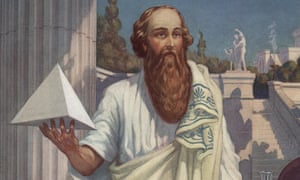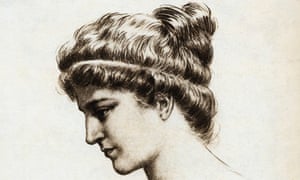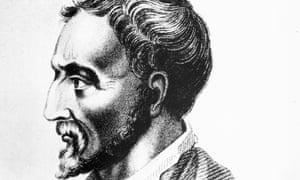The 3 best mathematicians
Alex Bellos selects the maths geniuses whose revolutionary discoveries changed our world

Pythagoras (circa 570-495BC)
Vegetarian mystical leader and number-obsessive, he owes his standing as the most famous name in maths due to a theorem about right-angled triangles, although it now appears it probably predated him. He lived in a community where numbers were venerated as much for their spiritual qualities as for their mathematical ones. His elevation of numbers as the essence of the world made him the towering primogenitor of Greek mathematics, essentially the beginning of mathematics as we know it now. And, famously, he didn't eat beans.
Hypatia (cAD360-415)

Women are under-represented in mathematics, yet the history of the subject is not exclusively male. Hypatia was a scholar at the library in Alexandria in the 4th century CE. Her most valuable scientific legacy was her edited version of Euclid's The Elements, the most important Greek mathematical text, and one of the standard versions for centuries after her particularly horrific death: she was murdered by a Christian mob who stripped her naked, peeled away her flesh with broken pottery and ripped apart her limbs.
Girolamo Cardano (1501 -1576)

Italian polymath for whom the term Renaissance man could have been invented. A doctor by profession, he was the author of 131 books. He was also a compulsive gambler. It was this last habit that led him to the first scientific analysis of probability. He realised he could win more on the dicing table if he expressed the likelihood of chance events using numbers. This was a revolutionary idea, and it led to probability theory, which in turn led to the birth of statistics, marketing, the insurance industry and the weather


No comments:
Post a Comment